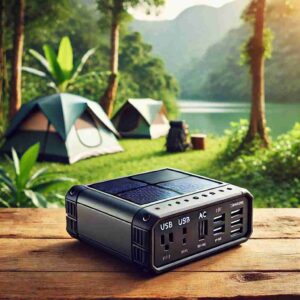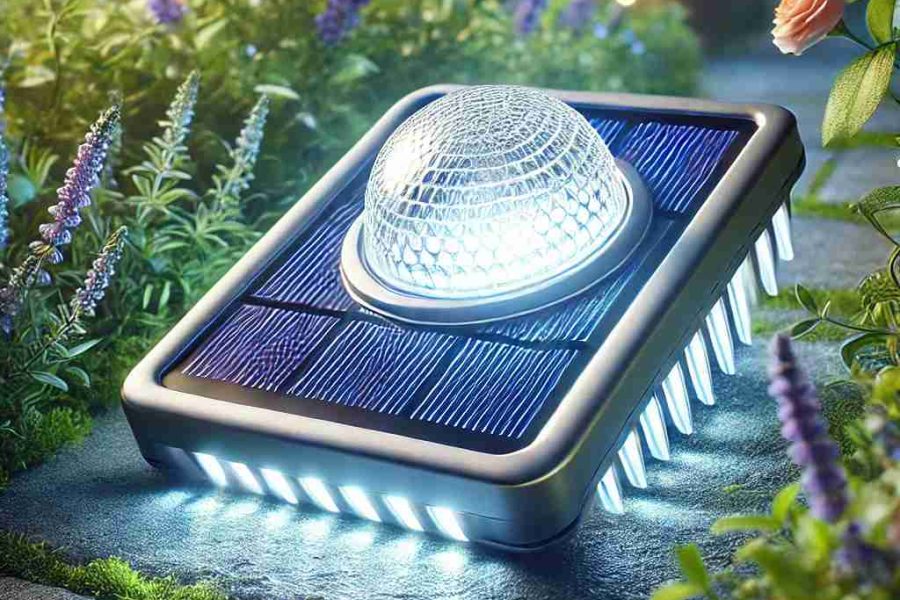
In our fast-paced world, having dependable and portable Energy Storage for Homes is increasingly important. Portable energy storage systems provide exceptional convenience and efficiency, whether you need to power appliances during an outage, charge devices while on the move, or support outdoor activities. This blog will delve into the benefits, applications, and features of these innovative solutions, as well as offer guidance on choosing the right one for your needs
What Is Portable Energy Storage?
Portable energy storage refers to compact, rechargeable power units designed to supply electricity wherever it is needed. These devices, often powered by advanced battery technology—such as lithium-ion or lead-acid—store energy from sources like solar panels or electrical outlets, allowing users to access power on demand through USB, AC, or DC outputs.
Advantages of Portable Energy Storage
- Versatility for All Needs
Portable energy storage systems are designed to meet a wide range of needs, whether it’s powering household appliances during outages or charging smartphones while camping. Their flexibility makes them ideal for both personal and professional use.
- Eco-Friendly Power
Many of these systems, especially those with solar charging options, encourage sustainable energy practices. By decreasing dependence on fossil fuels, portable energy storage helps pave the way for a greener future.
- Cost-Effective Solution
In the long run, portable energy storage can help reduce electricity costs by optimizing the use of renewable energy and decreasing reliance on the grid.
- Enhanced Convenience
With their compact designs and lightweight construction, portable power stations are easy to transport, ensuring you have access to energy wherever you are.
- Emergency Preparedness
In the event of natural disasters or sudden power outages, portable energy storage systems can provide essential backup power for critical devices like medical equipment, communication tools, and lighting.
Why Choose Portable Energy Storage for Home?
Uninterrupted Power Supply
Power outages can significantly impact your daily routine, interrupting work and affecting essential appliances. A portable energy storage system provides a reliable backup power source, ensuring you stay prepared during unexpected interruptions.
Eco-Friendly Energy Solution
Many contemporary portable energy systems utilize renewable energy sources such as solar panels, which help decrease dependence on traditional fossil fuels and minimize your carbon footprint.
Cost Savings
By adopting solar-powered storage systems, you can lower your electricity bills and cut down on long-term energy costs.
Flexibility and Portability
In contrast to traditional generators, portable energy storage systems are lightweight, compact, and easy to transport, making them perfect for both home use and outdoor activities.
Noise-Free Operation
Unlike gas-powered generators, these systems function quietly, making them an excellent option for indoor settings or areas where noise is a concern.
Choosing the Right Portable Energy Storage System For Home
When picking a portable energy storage unit, think about your power needs, how you plan to use it, and your charging options. Models like the WV-SE-006 Portable Solar Power Station offer a great mix of portability and advanced features, including built-in solar panels, a 300W inverter, and entertainment options, making them perfect for a variety of situations.
The Future of Portable Energy Storage
With ongoing technological advancements, portable energy storage systems are becoming more efficient, smaller, and more affordable. As sustainability becomes increasingly important, these devices will be essential in minimizing global energy footprints while offering unmatched convenience.
Get Powered Up with WattValley
Explore innovative portable energy storage solutions at WattValley. Whether you need dependable power for outdoor activities or a sustainable backup option, our selection of products ensures quality, durability, and top performance.
Top Applications of Portable Energy Storage at Home
Emergency Backup Power
Keep essential devices such as refrigerators, lights, and medical equipment operational during blackouts.
Remote Work Support
Charge laptops, Wi-Fi routers, and phones to maintain productivity, even when the power goes out.
Outdoor Activities and Camping
Portable energy storage enables you to power camping lights, small appliances, or charge devices, ensuring comfort and convenience while enjoying the great outdoors.
Sustainable Energy Storage
Combine your portable system with a solar panel to harness renewable energy and lessen reliance on the grid.
Smart Home Integration
Utilize it to power smart home devices like security cameras, sensors, and automated systems during power outages.
Key Features to Consider in a Portable Energy Storage System
Battery Capacity
Select a system with sufficient storage capacity (measured in watt-hours) to fulfill your requirements. For instance, a 500Wh unit can run a refrigerator for approximately 5 hours or recharge a smartphone over 50 times.
Power Output Options
Seek out multiple output ports, including USB, AC, and DC, to accommodate a range of devices.
Rechargeability
Choose a system that offers various charging methods, such as solar panels, wall outlets, and car chargers.
Durability and Safety Features
Make sure the system has features like overcharge protection, short-circuit prevention, and robust, weather-resistant housing.
Portability
Lightweight and compact designs facilitate easier movement and usage of the system both indoors and outdoors.
Popular Portable Energy Storage Solutions
Solar-Powered Energy Stations
These systems are perfect for eco-conscious users, as they can be charged with solar panels, offering a sustainable energy source.
Battery Generators
Compact and efficient, battery generators are great for powering small appliances, gadgets, and essential equipment.
Hybrid Systems
These systems combine traditional charging methods with solar options, providing greater flexibility and reliability.
Tips for Using Portable Energy Storage at Home
Plan Your Power Needs
Determine which devices and appliances you’ll need to power during an outage or emergency to figure out the appropriate system size.
Keep It Charged
Make sure your portable energy system is always fully charged, so it’s ready for use when you need it.
Pair with Solar Panels
To extend usage and promote eco-friendly operation, consider investing in solar panels to recharge your energy storage unit.
Test Regularly
Regularly test your system to ensure it’s working properly and meets your power needs.
Store Properly
Keep the unit in a dry, cool location and adhere to the manufacturer’s guidelines for maintenance and storage.
Portable energy storage systems are changing how we handle power in our homes. They provide a practical, environmentally friendly, and budget-friendly option for emergencies, outdoor adventures, and everyday energy requirements. Their versatility and ease of use make investing in a portable energy storage unit a smart choice to ensure you’re ready for any scenario. Check out the newest portable energy storage options today and energize your home with assurance!
FAQs
Q1. What is portable energy storage?
Portable energy storage refers to compact and mobile devices or systems that store electrical energy and provide power to various devices, appliances, or systems on the go. These are typically powered by rechargeable batteries, such as lithium-ion or lead-acid batteries.
Q2. What are the common uses of portable energy storage?
Portable energy storage devices are used for:
- Camping and outdoor adventures.
- Emergency backup during power outages.
- Powering small appliances, tools, or electronics.
- Supporting renewable energy systems like solar panels.
- Mobile offices and remote work setups.
Q3. How long do portable energy storage devices last?
The lifespan depends on the battery type, usage, and maintenance. High-quality lithium-ion battery units typically last 3-5 years or 500-1000 charge cycles, while lead-acid batteries may have a shorter lifespan.
Q4. Are portable energy storage devices eco-friendly?
Yes, especially those integrated with renewable energy sources like solar panels. They reduce reliance on fossil fuels and lower carbon footprints by enabling cleaner energy consumption.
Q5. Can portable energy storage power large appliances?
Yes, but this depends on the capacity and inverter size. Devices with higher wattage ratings can power appliances like refrigerators, microwaves, or power tools, while smaller units are ideal for electronics like phones or laptops.
Q6. What should I consider when buying portable energy storage?
Key factors to evaluate include:
- Battery capacity (measured in watt-hours).
- Output ports and compatibility.
- Charging options (solar, AC, car, etc.).
- Weight and portability.
- Safety features like overcharge and short-circuit protection.
Q7. How do I charge a portable energy storage device?
Charging methods typically include:
- Plugging into an AC outlet.
- Using solar panels for renewable energy charging.
- Connecting to a car charger during travel.
Q8. Are portable energy storage devices safe?
Most modern devices are equipped with multiple safety features, including:
- Overcharge protection.
- Short-circuit protection.
- Temperature control systems to prevent overheating.
Q9. Can I use portable energy storage for medical devices?
Yes, some portable energy storage devices are capable of powering medical equipment like CPAP machines. Always check the compatibility and ensure the unit has sufficient capacity.
Q10. Where can I buy reliable portable energy storage devices?
Explore high-quality, durable, and innovative solutions at WattValley. They offer a wide range of products tailored for camping, emergency, and everyday needs.





